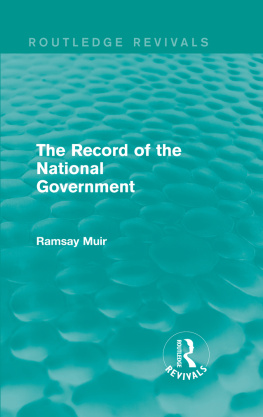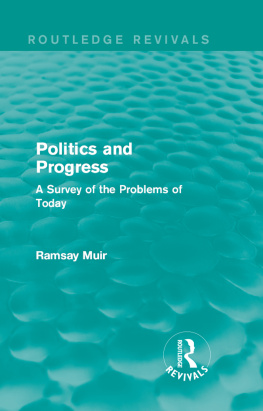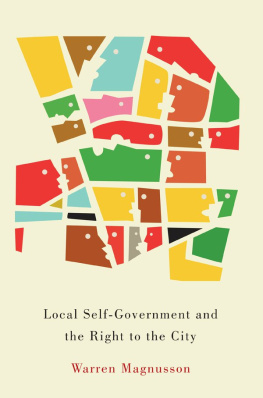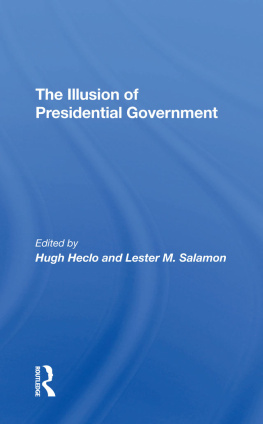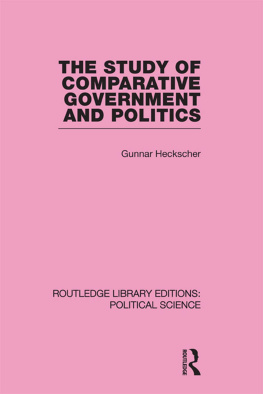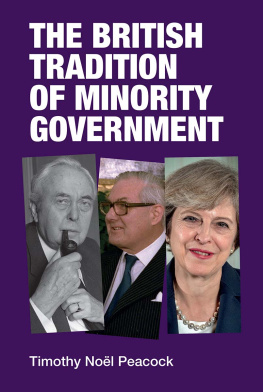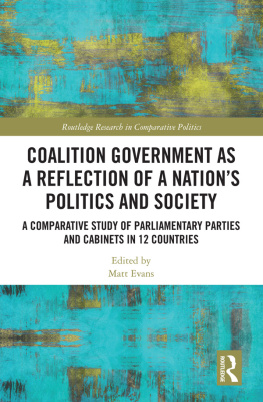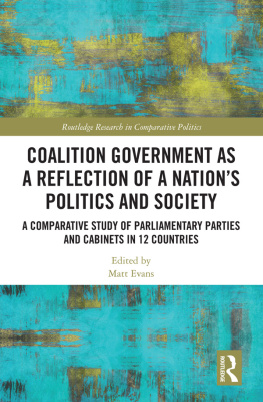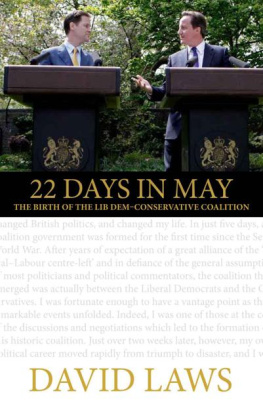Routledge Revivals
The Record of the National Government
The introduction of the National Government in 1931 came about due to the Wall Street Crash leading to a British Government run by members of all parties, more commonly known as a coalition government today. With public opinion split on how to deal with the financial crisis, this was initially seen as a positive step by many, but for many, the national government was not the ideal solution. Ramsay Muir was one such ex-supporter and originally published in 1936, his study aims to provide a timeline of the events happening before, during and after the original national government and how this impacted on British politics. This title will be of interest to students of Politics and Political History.
The Record of the National Government
Ramsay Muir
First published in 1936
by George Allen & Unwin Ltd
This edition first published in 2016 by Routledge
2 Park Square, Milton Park, Abingdon, Oxon, OX14 4RN
and by Routledge
711 Third Avenue, New York, NY 10017
Routledge is an imprint of the Taylor & Francis Group, an informa business
1936 Ramsay Muir
All rights reserved. No part of this book may be reprinted or reproduced or utilised in any form or by any electronic, mechanical, or other means, now known or hereafter invented, including photocopying and recording, or in any information storage or retrieval system, without permission in writing from the publishers.
Publishers Note
The publisher has gone to great lengths to ensure the quality of this reprint but points out that some imperfections in the original copies may be apparent.
Disclaimer
The publisher has made every effort to trace copyright holders and welcomes correspondence from those they have been unable to contact.
A Library of Congress record exists under LC control number: 37002916
ISBN 13: 978-1-158-64349-9 (hbk)
ISBN 13: 978-1-315-62935-3 (ebk)
The RECORD OF THE NATIONAL GOVERNMENT
by
RAMSAY
MUIR
FIRST PUBLISHED IN 1936
All rights reserved
PRINTED IN GREAT BRITAIN BY
UNWIN BROTHERS LTD., WOKING
Contents
| CHAPTER |
| I. | Character of the Election |
| CHAPTER |
Preface
THIS little book is an attempt to survey the work of the National Government from the point of view of one who began by supporting it, and has been driven into more and more complete opposition. Although I have tried to give it credit for whatever it has done that is good, I do not pretend to be impartial. As a student of modern history, I believe it to be the worst, the weakest, the most timorous, and the most incompetent Government that Britain has known since the days of Lord North. Honestly holding this view, I have felt myself under an obligation to express it. But I have avoided personalities and mere denunciation. I have confined myself to the analysis of facts and to the development of serious argument. The book might have been more lively if I had adopted another method. But I submit that both the facts and the arguments deserve to be seriously weighed by those who have hitherto been bemused by the name of the National Government. Its worst failures have indeed been due to the Nationalism of its policy and to its abandonment or reversal of the principles upon which the greatness of Britain was built during the nineteenth century.
RAMSAY MUIR
THE RECORD OF THE NATIONAL GOVERNMENT
Chapter I
Antecedents
THE experiment of "national" or all-party government was set on foot in Britain in 1931 as a means of enabling the country to extricate herself from the financial crisis of that year, which threatened to destroy her credit and to plunge her in financial confusion. It is impossible to form a fair judgment upon the character and results of this experiment without first obtaining clear ideas about the crisis which gave it birth.
Although the crisis only began to mature towards the close of 1929, it had been long in preparation, and was in truth the outcome of the dislocation of world trade and finance which had resulted from the Great War. Three aspects of this dislocation deserve to be kept in mind.
In the first place, during the war the great industrial nations of Europe, which had previously supplied the greater part of the world with the manufactured goods they required, were all so engrossed in the war that they could no longer carry on their foreign trade on the old scale. The result was that the United States and Japan saw a great increase of their foreign trade, while in many countries new manufacturing industries were stimulated into existence. When the war was over, reluctant to lose their war-time advantage, these countries protected their new industries with high tariffs. And another motive reinforced this tendency. With the experience of the war before them, most countries feared to see themselves dependent upon other countries for important classes of goods, and especially for commodities needed in war. They strove after self-sufficiency. From these causes arose the plague of "economic nationalism," which has brought distress to all countries and impoverished millions of people. It did not reach its height until the crisis which began in 1929, but it was at work earlier. The channels of world-trade were being clogged; and the peoples of the earth were being impoverished, and prevented by their Governments from enjoying the abundance which the generosity of Nature and the ingenuity of man were making available for their use.
In the second place, the war had brought about a complete disorganisation of the monetary system of all the belligerent countries, and, indeed, of others also. Before the war all the great trading countries except China had put their money on the Gold Standard: that is to say, they had guaranteed that their units of money (pound, franc, dollar, mark, etc.) should always be equal in value to a fixed weight of gold; and to ensure this their banks were always ready to give gold in exchange for their notes. But in war so much money had to be issued for the payment of troops and the purchase of supplies that all the belligerent countries had to abandon the Gold Standard and issue inconvertible paper money. Some countries were more reckless than others in their use of the printing-press for the creation of money. But all had to increase vastly their supply of money, with the result that prices rose rapidly: for when money was plentiful, more of it had to be given in exchange for the same amount of goods. After the war the issue of paper money went on for the purposes of reconstruction and (in the case of Germany) under the pressure of the immense burdens imposed upon her by the victorious Allies. In some countries inflation was carried to such a point that their money became almost valueless. The result was that as the value of various countries' money changed violently from day to day, trade became almost impossible. By an immense effort this ruinous process was brought to an end in 1924 and the following years, when, in modified form, all the European countries returned to the Gold Standard. This was the chief cause of the revival of international trade which marked the years 19249; trade again became possible when the moneys of various countries had a fixed value in relation to one another. But vast losses had been inflicted upon certain classes of the community in the countries where this frenzied process of "inflation" had been carried furthest. All savings invested in securities with a fixed rate of interest lost value; the German (for example) who had owned 10,000 worth of national debt found that his holding was only worth a minute fraction of a penny, and in this way the German national debt was wiped out, and a large part of the German, Austrian, Polish, Hungarian, and (in a less degree) French middle classes were reduced to poverty or even destitution.

